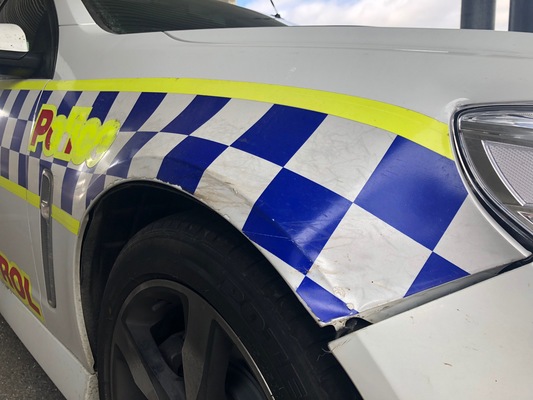Roadside cameras that can catch drivers using their phones behind the wheel or not wearing a seatbelt will be permanently rolled out on Queensland roads later this month.
With the number of lives lost on Queensland roads continuing to cause concern among authorities, the new cameras are a key part of the State Government’s $1.69 billion road safety plan.
Transport and Main Roads Minister Mark Bailey said distracted driving was a silent killer on the state’s roads, likening it to drink driving.
“Our message has always been direct and very simple: just put your phone away,” Mr Bailey said.
“Using a mobile phone while driving has the same impact as getting behind the wheel with a blood alcohol reading between 0.07 and 0.10.
“We successfully trialled these cameras last year, and have been talking about them coming to Queensland roads for two years.
“That time has arrived and, from 26 July , the cameras will be out on roads across the state ready to spot drivers using their phones when they’re driving.
“Some of the cameras will be mobile, and we won’t be telling people where they are either.
“Drivers should expect to be caught anywhere, anytime, whether they’re driving in the city or on a regional highway.”
Mr Bailey said there would be a three-month grace period for drivers, meaning those caught on camera using their phone between 26 July and 31 October this year would be notified and made aware they had been caught, but not fined.
From 1 November, any driver caught by the cameras can expect to receive a $1033 fine and lose four demerit points, the penalty for not wearing a seatbelt is $413 and three demerit points.
The cameras will also be able to detect drivers and their front seat passengers not wearing their seatbelts.
During the camera trial from July to December 2020 more than 15,000 people were detected illegally using a mobile phone and 2200 not wearing a seat belt.
Last year, 43 people who died in crashes in Queensland weren’t wearing a seatbelt, 14 more than in 2019 and 15 more than the previous five-year average.
Mr Bailey said the tough penalties were necessary to stamp out driver distraction.
“So far in 2021, 136 people have died on Queensland roads – 12 more than at the same time last year,” he said.
“The numbers are shocking, particularly when you consider that for every life lost, another 27 people are treated in hospital.
“These deaths and injuries have a shattering impact on communities across the state.”
RACQ spokesperson Renee Smith said the Club welcomed the introduction of mobile phone and seatbelt detection cameras across Queensland to improve road safety.
“We know on average around 29 people are killed and more than 1000 others are seriously injured every year on Queensland roads as a result of crashes where driver distraction played a part,” Ms Smith said.
“Sadly, we’re still seeing drivers refusing to wear a seatbelt. Seatbelts save lives – it’s as simple as that.
Distracted driving is not the only deadly driving behaviour set to be targeted with changes this year with the most substantial reforms to drink driving since random breath testing was introduced starting from September.
“Under these reforms, drink drivers will need to complete an early intervention course before they can get their licence back,” Mr Bailey said.
“Repeat offenders will also be subject to a mandatory, multi-session education program, and changes to the Alcohol Ignition Interlock Program will see it expanded to include mid-range drink drivers.”
Mr Bailey said the Queensland Government would invest record funding in road safety initiatives over the next four years.
“That funding will be used to prioritise safety upgrades, improve driver education, make school zones safer and develop policies to reduce road crashes and trauma,” Mr Bailey said.
“We’ll also continue working with the Federal Government to deliver upgrades like better rest facilities, new road barriers, extra street lighting and overtaking lanes, audio line-marking and wide centre line treatments on high risk roads across the state.”







